WINTER 2023
MIT SCHOOL OF HUMANITIES, ARTS, AND SOCIAL SCIENCES
SUBSCRIBE
RECENT WORKS AND RESEARCH

Graphic by Jose-Luis Olivares
ECONOMICS
Automation drives income inequality | Daron Acemoglu
A newly published study co-authored by Acemoglu quantifies the extent to which automation has contributed to income inequality in the U.S., simply by replacing workers with technology — whether self-checkout machines, call-center systems, assembly-line technology, or other devices. Over the last four decades, the income gap between more- and less-educated workers has grown significantly; the study finds that automation accounts for more than half of that increase.
Story at MIT News
ECONOMICS
Doctors and their families are less likely to follow medical guidelines | Amy Finkelstein
Finkelstein, alongside coauthors from Stanford and Harvard, released a new study based on over a decade of population-wide data from Sweden and includes suggestive evidence about why doctors and their families may ignore medical advice. The paper, “A Taste of Their Own Medicine: Guideline Adherence and Access to Expertise,” is published in the American Economic Review: Insights.
Story at MIT News | Paper
PHILOSOPHY
Facing reality, however painful it may be | Kieran Setiya
You might not feel good. But you can still live a good life. That is a central message of Life Is Hard, a new book by Setiya recently published by Riverhead Books. In it, Setiya does not promise solutions for life’s problems themselves. Instead, he works out an approach to grappling with them: Recognizing our problems, reflecting upon them, and committing to help others can make matters seem more manageable.
Story at MIT News | Book
MEET OUR STUDENTS
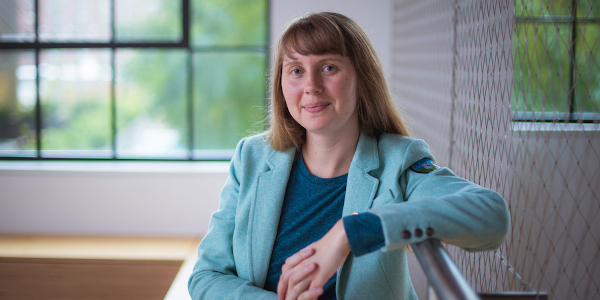
Skylar Larsen; photo by Gretchen Ertl
SCIENCE WRITING + VISUAL ART
Expanding horizons through astronomy and art | Skylar Larsen
Larsen speaks to MIT News about her broad interests and many accomplishments in fields from visual art and animation to astronomy to science writing. "I really love to use my art as a science communicator. Making comics, making videos games — I would love to try and use those mediums to bring science topics to kids.”
Full profile at MIT News
GLOBAL LANGUAGES
Valeria Robayo is putting her own twist on the pre-med experience
At first, Robayo was motivated to take German at MIT to fulfill the language requirement for MISTI, but she found herself loving the teaching staff and the style of the classes. Robayo has continued to study the language and culture, and was recently awarded a round-trip flight to Germany after winning first place in the MIT German Studies Excellence Award. “Learning a language is a way to show respect for the culture that you’re working with.”
Full profile at MIT News
PHILOSOPHY
Exploring morality at MIT | Eliza Wells
A fourth year student in MIT’s philosophy PhD program, Wells studies morality and facilitates discussions at the Institute about ethics and technology. “I believe that philosophy can change lives. I want to help people interrogate their values so that they can make their own lives and others’ better,” she says.
Full profile at MIT News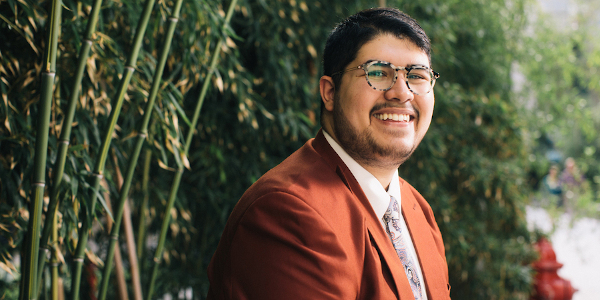
David Spicer; photo by Jake Belcher
POLITICAL SCIENCE
Exploring education from all angles | David Spicer
Now a senior studying political science and the president of MIT’s Undergraduate Association (UA), Spicer has continued to explore the many facets of education. “Education is one of those things that everyone has an experience with,” he says. “And those experiences inform how you think of issues in education.” Thinking about those issues goes beyond just the classroom, where Spicer has balanced theory and practice while taking classes spanning education policy, research, and leadership, at MIT and Harvard University.
Full profile at MIT News
POLITICAL SCIENCE
Making each vote count | Jacob Jaffe
Considerable research has been devoted to understanding “who votes, and what makes people vote or not vote,” says Jaffe. He is training his attention on questions of a different nature: Does providing practical information to voters about how to cast their ballots change how they will vote? Is it possible to increase the accuracy of vote-counting, on a state-by-state and even precinct-by-precinct basis? How do voters experience polling places? These problems form the core of his dissertation.
Full profile at MIT News
HISTORY, ANTHROPOLOGY, AND SCIENCE, TECHNOLOGY, AND SOCIETY
A musician-turned-anthropologist studies venture capitalism in China | Jamie Wong
Wong developed a broader interest in the startup economy and venture capitalism in China. Now, through ethnography, she is researching how these economic structures have taken hold in China and influenced Chinese businesses and government. As she gains insight into China’s economic and government structures, she also hopes to get a better understanding of “what lies ahead for Hong Kong,” she says.
Full profile at MIT News
IN THE CLASSROOM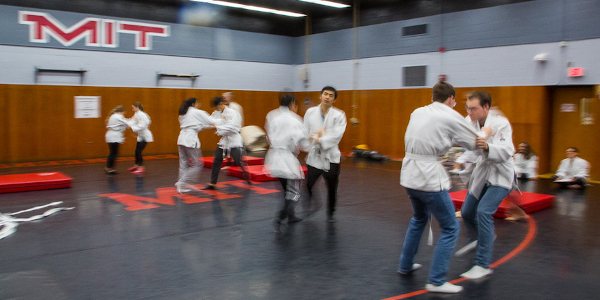
Photo by Jon Sachs
PROGRAM IN SCIENCE, TECHNOLOGY, AND SOCIETY
Bringing movement into the classroom and academics into the gym
An experimental new course, taught by Jennifer Light, rethinks the relationship between brains and bodies in schools, drawing on practices from dance to judo. Light said, “I want to expand campus conversations about the future of education beyond their present technology focus to incorporate the latest scientific research on movement and learning.”
Story at MIT News
PHILOSOPHY
Ethics in action
In MIT’s Experiential Ethics summer course, students grapple with real-world ethical decision making, often while interning in the very fields they’re studying. Now in its third year, the course covers ethical concepts and frameworks — such as the relationship between science, technology, and justice and how to navigate ethical conflicts responsibly — while challenging students to consider those principles during their day-to-day work at summer internships, jobs, or research experiences.
Story at MIT News
CULTURAL INTERSECTIONS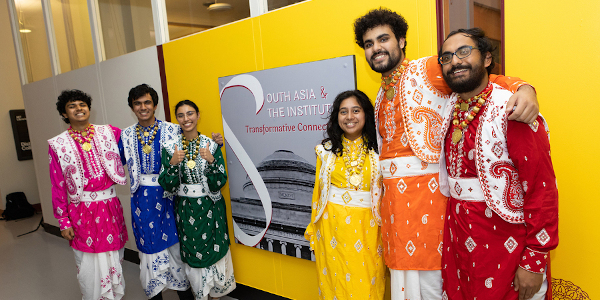
The MIT Bhangra team at the gallery's opening; photo by Mike Spencer
HISTORY + MISTI
Uncovering the rich connections between South Asia and MIT
A new gallery exhibit, South Asia and the Institute: Transformative Connections, will be on display in the Maihaugen Gallery throughout the year. A central focus of the project was to capture the personal stories of the pioneering South Asian alumni. Those stories, as the exhibit shows, are inextricably linked to the history of MIT, the U.S., and the South Asian subcontinent more broadly, and they offer a window into issues like immigration and race in the U.S. and decolonization and nation-building in South Asia.
Story
GLOBAL LANGUAGES
Celebrating diversity in student cultural and linguistic backgrounds at MIT
Nearly 70 students came together to take part in the “Heritage Meets Heritage” event on Oct. 27, organized by MIT Global Languages, MISTI, and Hermanas Unidas. Students participated in small group conversations on a variety of topics addressing diversity of cultural heritage (their favorite, traditions, holidays, music) and questions such as heritage language identity, multilingualism and multiculturalism, perceptions of words in different languages, and communication nuances in different languages and cultures.
Story
MAKING A JUST SOCIETY
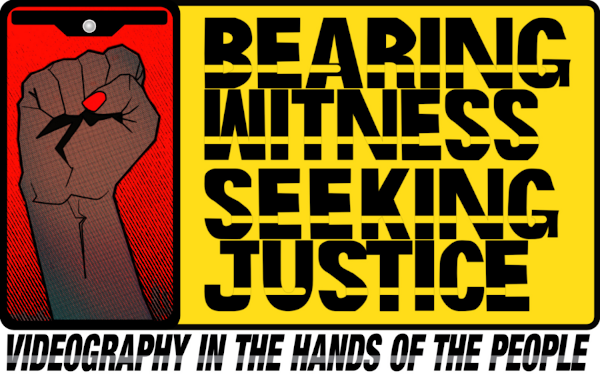
CMS/W
MIT’s inaugural Bearing Witness, Seeking Justice conference explores video’s role in the struggle over truth and civil liberties.
Bearing Witness, Seeking Justice: Videography in the Hands of the People, a conference held on MIT’s campus and via livestream Oct. 5–7, delved into the complex issues surrounding the creation and dissemination of countless visual documentations of injustice leveraged by activists, journalists, and bystanders to demand change. The conference examined video technology’s histories; its role in protecting our rights and civil liberties; its interaction with the press and social media platforms; and its abuses, especially related to surveillance and deepfakes.
Conference coverage | Recorded conference sessions
CLIMATE FUTURES
"Year 2180" is a speculative urban design multiplayer video game built upon digital twins, historical data, community knowledge, and geographic information system data; graphic via Studioteka
OPEN DOCUMENTARY LAB
Using game engines and “twins” to co-create stories of climate futures
Five multidisciplinary teams recently convened at MIT — virtually — for the inaugural WORLDING workshop. In a weeklong series of research and development gatherings, the teams met with MIT scientists, staff, fellows, students and graduates as well as other leading figures in the field. “WORLDING illustrates the emergence of an entirely new field that fuses urban planning, climate science, real-time 3D engines, nonfiction storytelling, and speculative fiction,” says Katerina Cizek, lead designer of the workshop at Co-Creation Studio, MIT Open Documentary Lab.
Story at MIT News
THE INTERNATIONAL STAGE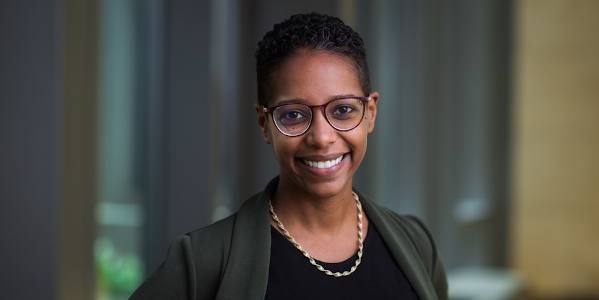
Associate Professor Mai Hassan; photo by Gretchen Ertl
POLITICAL SCIENCE
Machinery of the state | Mai Hassan
Hassan’s portfolio encompasses not just the bureaucratic state but democratization efforts in Kenya and elsewhere in the East Africa region, including her native Sudan. Her research highlights the difficulties of democratization. “I’m finding that the conditions under which people come together for overthrowing an autocratic regime really matter, because those conditions may actually impede a nation from achieving democracy,” she says.
Profile at MIT News
HISTORY + CENTER FOR INTERNATIONAL STUDIES
Q&A: Pouya Alimagham on the protest movement in Iran
In his research, Alimagham, an expert on Iran, Iraq, and the Levant, explores such themes as revolutionary and guerrilla movements, imperialism, “Political Islam,” and post-Islamism. In this interview, Alimagham, discusses the historical context behind the current movement, compares it with other uprisings in Iran, and explains what this could mean for the country’s future.
Interview at MIT News
STARR FORUM
Energy, war, and the crisis in Ukraine
Russia’s invasion of Ukraine is having a global impact on many areas of the world today, affecting the balance of power among states and creating a contest between democratic and authoritarian alliances. It is also having a major impact on the global energy supply. There is a battle over energy surrounding the invasion, as a panel of experts analyzed. The online discussion, “Energy As a Weapon of War,” was the latest Starr Forum, MIT’s prominent event series on foreign policy and international relations.
Coverage at MIT News
POLITICAL SCIENCE
Urbanization: No fast lane to transformation | Noah Nathan
With his singular approach to data collection and deep understanding of Accra, its neighborhoods, and increasingly, its built environment, Nathan is generating a body of scholarship on the political impacts of urbanization throughout the global South.
Profile at MIT News
CENTER FOR INTERNATIONAL STUDIES + SECURITY STUDIES PROGRAM
Clearinghouse: analysis + research about the war in Ukraine
The implications and consequences of the Russian assault on Ukraine will be felt for years. MIT CIS and SSP are closely involved via analysis, advice, and informing the public with regular updates.
Clearinghouse: Analysis + Research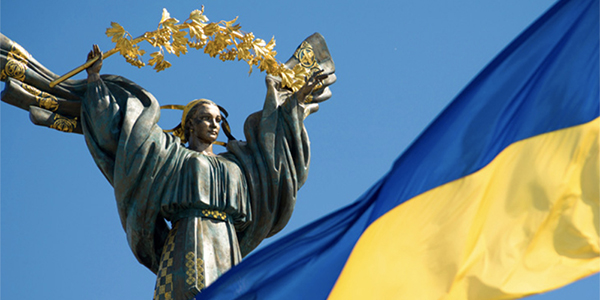
SHASS ALUMNI STORIES
Calling all SHASS fields: Have you taught or mentored a student with a compelling post-graduation story? Media Relations Manager Stephen Oakes (oakes@mit.edu) would like to hear from you!
EXPLORE
Follow us
Published by SHASS Communications
Office of the Dean, MIT School of Humanities, Arts, and Social Sciences
xx January 2023
Michael Brindley, Director of Communications
Alison Lanier, Senior Communications Associate
Steve Oakes, Media Relations Manager



